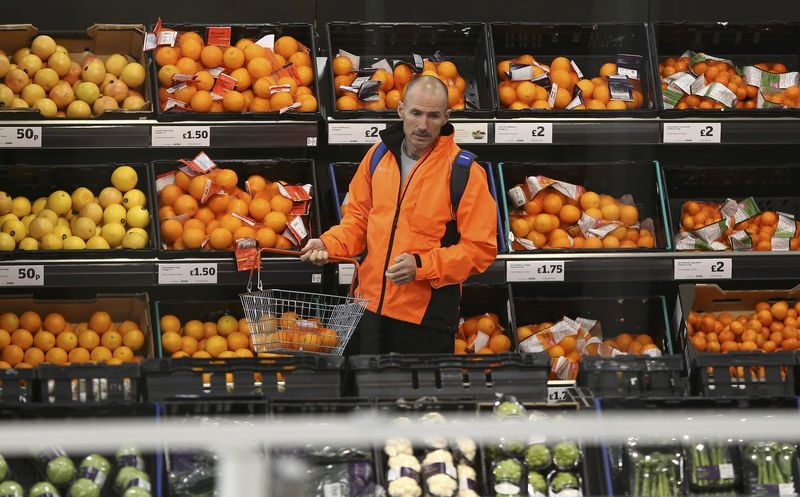By James Davey
LONDON (Reuters) - Britain’s No.2 supermarket group Sainsbury's (L:SBRY) aims to have an Argos presence in every one of its British stores, its chief executive said on Tuesday.
Sainsbury's completed a 1.4 billion pound takeover of Argos and Habitat owner Home Retail early last month, looking to accelerate growth with the creation of Britain's largest general merchandise retail business and a vastly expanded online offering.
"Over time we'd envisage that there won't be a single Sainsbury's -- with the exception of some very small convenience shops -- where you won't either be able to see an Argos concession or be able to 'click & collect' items within four hours (of ordering)," CEO Mike Coupe told reporters.
The purchase of Home Retail means Sainsbury's now sells more than 90,000 non-food products, trading from about 2,000 UK stores. These comprise 601 supermarkets, 782 convenience stores, 739 Argos stores including concessions, plus three Habitat stores.
The group plans to have about 30 Argos digital concessions in Sainsbury's stores by Christmas and three Habitat concessions.
Part of the company's plan involves relocating existing standalone Argos stores to the Sainsbury's supermarket network, though Coupe declined to say how many Argos stores will close.
Coupe was speaking at the new Nine Elms Sainsbury's in south west London -- the first supermarket to have both Argos and Habitat concessions.
"First and foremost we're a food retailer and this (store) brings together many of the ideas we have to develop our food business," said Coupe, highlighting newly designed fish, fresh meat and delicatessen counters among the changes.
"But it also shows how the Argos and Habitat brand can work in the supermarket environment," he added.
Sainsbury's shares are down 10 percent this year and some investors have expressed concern that the Home Retail takeover unwisely increases the company's exposure to the threat of Amazon (O:AMZN) and to higher import costs after the Brexit-driven slump in the value of the British pound.
Some also view the integration of the businesses as a significant management distraction.
Coupe, however, is bullish on the merged group's prospects.
"Although we have created a very large non-food business, we have plenty of upside opportunity because our market share of non-food is still relatively small," he said.
"We think the acquisition helps secure our future."
Last month Sainsbury’s reported a drop in underlying sales for the second straight quarter, driven by price deflation, though it said it was confident of outperforming major rivals.

Some analysts, however, view Sainsbury's as vulnerable to a recovering Tesco (L:TSCO) or a new price offensive from sector laggard Asda (N:WMT).